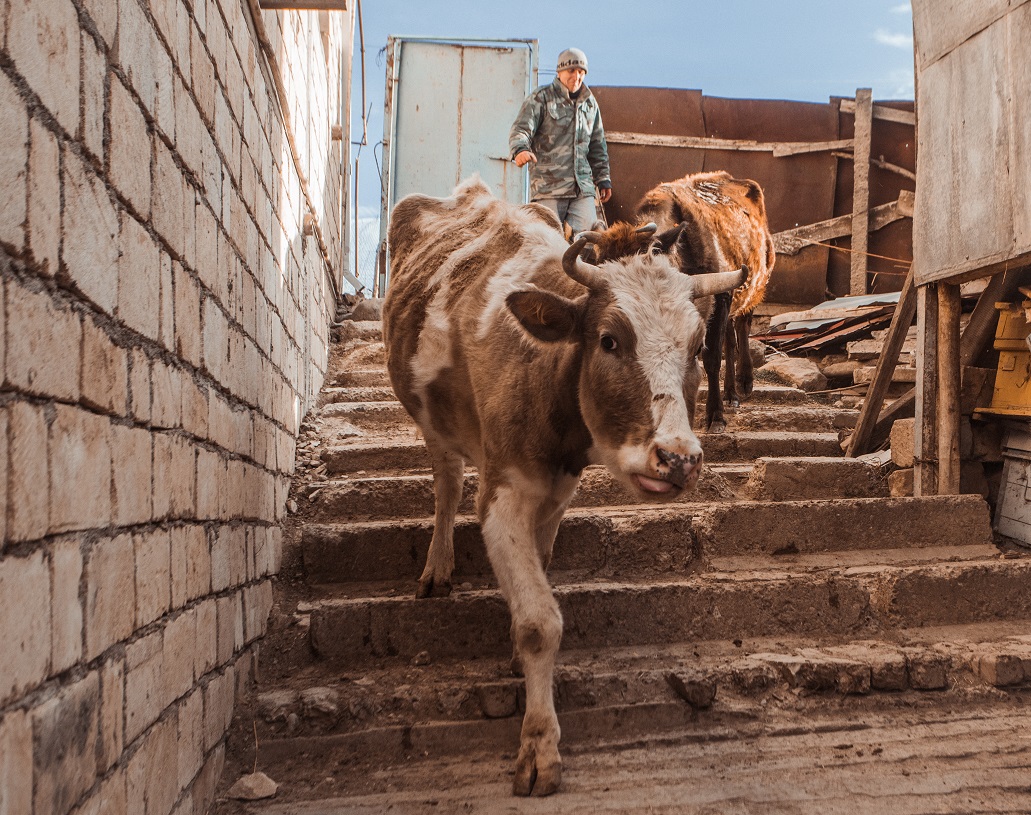US State Dep. report : No alternative to military service for conscientious objectors in Azerbaijan
US Department of State’s report on religious freedom in Azerbaijan
The US State Department stated that there is no civilian alternative to the compulsory military service in Azerbaijan for those who refuse to be conscripted for religious reasons. However, this right of Azerbaijani citizens is recognized in the country’s constitution. This is stated in the “World Religious Freedom Report 2021” published by the United States government.
- Azerbaijani blogger accuses Baku authorities of conspiring against him after he left the country
- Ilham Aliyev: “If we are defining borders, what NK status is there to talk about?”
- Baku cinema features local film about LGBTQI+ for the first time in Azerbaijan
In the part of the report devoted to Azerbaijan, it is noted that 96% of the country’s population are Muslims, of which approximately 65% are Shiites and 35% are Sunnis.
4% of the population follow other religions. These religious groups include the Russian Orthodox Church; Georgian Orthodox Church; Armenian Apostolic Church; Seventh Day Adventists; Molokan church; the Roman Catholic Church; other Christians, including evangelical churches, Baptists, and Jehovah’s Witnesses; Jews; and Baha’is.
Ethnic Azerbaijanis are mostly Muslims, while non-Muslims are mostly Russians, Georgians, Armenians and other ethnic minorities.
The International Society for Krishna Consciousness also operates in the country.
The State Department emphasizes that these data are based on the statistical materials of the State Committee for Work with Religious Associations of Azerbaijan, published in 2011.
Prisoners of conscience and their pardon
The State Department report noted that in March 2021, President Ilham Aliyev pardoned hundreds of prisoners and released many religious activists who had been considered political prisoners by human rights groups.
The European Court of Human Rights (ECHR) issued three judgments during the past year concerning violations of freedom of religion or belief in the country.
Lack of alternative to military service
“While the constitution allows alternative service “in certain cases” where military service is contrary to personal beliefs, there is no legislation allowing alternative service, including on religious grounds”, the report says.
It is noted that refusal to perform military service in Azerbaijan is punishable under the criminal code with imprisonment for up to two years or forced conscription for military service.
The US government draws attention to the fact that the Azerbaijani authorities have not yet introduced a civilian alternative to compulsory military service for conscientious objectors, despite the fact that this is required by the constitution.
Thus, on October 7, 2021, the European Court of Human Rights (ECHR) ruled in the case of Jehovah’s Witnesses Emil Mehdiyev and Vakhid Abilov, who were convicted in 2018 and received a year of probation for criminal evasion from military service. The European Court accepted the government’s admission that it violated the human rights of both men and ordered them to pay compensation and legal costs of 3,500 euros ($4,000) for each defendant.
An October decision by the ECtHR brought the number of conscientious objectors whose human rights were violated by the government to seven, and to whom the government should have paid compensation.
During the year, the government has signaled its potential readiness to change its policy on conscientious objectors.
The head of the State Committee for Religious Affairs, Mubariz Gurbanli, who previously opposed such accommodation, said after the country’s victory in the 2020 war with Armenia that the time had come for the country to accept a religious exemption from conscription. He expressed readiness to promote this idea among the deputies.
However, later that year, a presidential administration spokesman said that the issue of alternative service was not being discussed.
Fate of religious objects in Karabakh
The US State Department report highlights that in the resolution “Humanitarian consequences of the conflict between Armenia and Azerbaijan/Nagorno-Karabakh conflict”, adopted on September 27, 2021, the Parliamentary Assembly of the Council of Europe (PACE) stated:
“The long-standing conflict has had a catastrophic impact on the cultural heritage and property of the region, for which both Armenia and Azerbaijan are responsible”.
PACE condemned the damage “deliberately caused to cultural heritage during the 6-week war and what appeared to be the deliberate shelling of the cathedral in Shusha, as well as the destruction or damage to other churches and cemeteries during and after the conflict”.
The resolution also states that PACE remains “concerned, in light of past destruction, about the future of many Armenian churches, monasteries, including the Dadivank monastery, as well as khachkars and other forms of cultural heritage that have returned to Azerbaijani control”.
The resolution expressed “concern about the development in Azerbaijan of a narrative that promotes a ‘Caucasian Albanian’ heritage instead of what is considered an ‘Armenian’ cultural heritage”.
The report notes that the Muslim population of Azerbaijan is also unable to attend mosques in the former conflict zone due to the presence of landmines in the area.




















